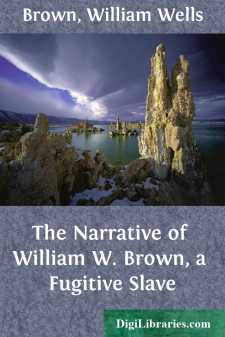Biography & Autobiography
- Adventurers & Explorers 15
- Artists, Architects, Photographers 16
- Business 2
- Composers & Musicians 14
- Criminals & Outlaws 5
- Cultural Heritage 1
- Editors, Journalists, Publishers 6
- Educators 1
- Entertainment & Performing Arts 3
- General 74
- Health, Exercise & Fitness 1
- Historians 3
- Historical
- Law Enforcement 1
- Lawyers & Judges 3
- Literary 147
- Medical 7
- Military 48
- Naturalists, Gardeners, Environmentalists 8
- Personal Memoirs & Diaries 228
- Philosophers 3
- Political 9
- Presidents & Heads of State 38
- Religious 39
- Rich & Famous 27
- Scientists 13
- Women 31
Historical Books
Sort by:
by:
Jacob Abbott
King Richard's Mother. 1137-1154Richard the Crusader.A quarrelsome king.King Richard the First, the Crusader, was a boisterous, reckless, and desperate man, and he made a great deal of noise in the world in his day. He began his career very early in life by quarreling with his father. Indeed, his father, his mother, and all his brothers and sisters were engaged, as long as the father lived, in...
more...
by:
George Long
LIFE OF PELOPIDAS. I. Cato the elder, speaking to some persons who were praising a man of reckless daring and audacity in war, observed that there is a difference between a man's setting a high value on courage, and setting a low value on his own life—and rightly. For a daring soldier in the army of Antigonus, but of broken and ill health, being asked by the king the reason of his paleness,...
more...
by:
Ellen Craft
PART I. "God gave us only over beast, fish, fowl, Dominion absolute; that right we hold By his donation. But man over man He made not lord; such title to himself Reserving, human left from human free." MILTON. My wife and myself were born in different towns in the State of Georgia, which is one of the principal slave States. It is true, our condition as slaves was not by any...
more...
Interviewer: Samuel S. TaylorPerson interviewed: Dr. D. B. Gaines1720 Izard Street, Little Rock, ArkansasAge: 75 “I was born in 1863 and am now seventy-five years old. You see, therefore, that I know nothing experimentally and practically about slavery. “I was born in South Carolina in Lawrence County, and my father moved away from the old place before I had any recollection. I remember nothing...
more...
I LORD PALMERSTON I remember ten Prime Ministers, and I know an eleventh. Some have passed beyond earshot of our criticism; but some remain, pale and ineffectual ghosts of former greatness, yet still touched by that human infirmity which prefers praise to blame. It will behove me to walk warily when I reach the present day; but, in dealing with figures which are already historical, one's judgments...
more...
CHAPTER I. I was born in Lexington, Ky. The man who stole me as soon as I was born, recorded the births of all the infants which he claimed to be born his property, in a book which he kept for that purpose. My mother's name was Elizabeth. She had seven children, viz: Solomon, Leander, Benjamin, Joseph, Millford, Elizabeth, and myself. No two of us were children of the same father. My father's...
more...
Asked for the story of his early life and his recollections of slavery, Elisha replied: "Yes Ma'am, 'deed I'll tell you all I knows 'bout dem days." His next words startled the interviewer. "I knowed you was comin' to write dis jedgment," he said. "I seed your hand writin' and long 'fore you got here I seed you jus' as plain as you is now. I...
more...
Interviewer: Miss Irene RobertsonPerson Interviewed: Silas Abbott R.F.D. Brinkley, Ark.Age: 73 "I was born in Chickashaw County, Mississippi. Ely Abbott and Maggie Abbott was our owners. They had three girls and two boys—Eddie and Johnny. We played together till I was grown. I loved em like if they was brothers. Papa and Mos Ely went to war together in a two-horse top buggy....
more...
I. BEING A BOY One of the best things in the world to be is a boy; it requires no experience, though it needs some practice to be a good one. The disadvantage of the position is that it does not last long enough; it is soon over; just as you get used to being a boy, you have to be something else, with a good deal more work to do and not half so much fun. And yet every boy is anxious to be a man, and is...
more...
CHAPTER I. Name widely known—Interest naturally awakened in his history—His origin —Development of his genius—Opinion of Capt. Horatio Jones—Customs of his people—Their love of eloquence—Distinguished orators among them—The inviting field opened. Among the aborigines of this country, few names have excited a deeper interest, or have been more widely and familiarly known than that of RED...
more...











